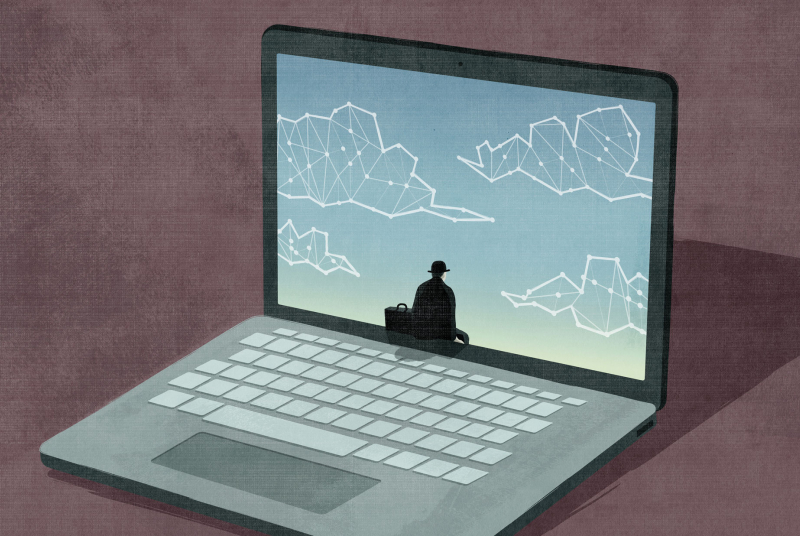
Here Come the Chatbots
The sudden and prolific onset of artificial intelligence (AI) chatbots has professors and students buzzing.
“I do worry there will be a loss in organic thinking, since writing is thinking,” says Chris Drain, a lecturer with the Institute for Writing and Rhetoric. “If students want to outsource their writing experience, I think they are shortchanging themselves. But if they end up in a career where they never really need to write, then how are they that much different than me with my calculators and online tools?”
In government professor Jennifer Jerit’s freshman writing seminar this winter, students discussed how AI can threaten democracy. “Text-generation technologies are constantly evolving, which means that the costs and benefits—to democracy and the classroom—are in a state of flux,” Jerit told DAM.
Philosophy professor Adina Roskies notes that the technology increases her frustration at what motivates students to learn. “They’re concerned about their grades, but not about their learning,” she says. “I think this is the kind of tool that has a possibility of breaking the system to such an extent that if people are still interested in hiring graduates who are well trained and can think for themselves, then there has to be some reward system other than grades. In the meantime, people are going to be trying to take advantage of it.”
John Bell, a lecturer in film and media studies, warns of the danger in prohibiting or ignoring AI. He’d prefer to see students trained in how to use it and critique the limits of AI-generated work. He plans to incorporate AI as a teaching tool in his classes. “There is no putting the toothpaste back in the tube,” he says. “I think it’s important to engage with the tools as they become available as part of preparing students for life after graduation.”
The most popular chatbot, ChatGPT, was launched by OpenAI in November. The company’s chief technology officer, Mira Murati, Th’12, acknowledged to Time magazine that there are many hard problems to still figure out when it comes to the technology. “We need a ton more input in this system and a lot more input that goes beyond the technologies—definitely regulators and governments and everything else.”
As the tech evolves, so will its uses and misuses. The debate will continue.










